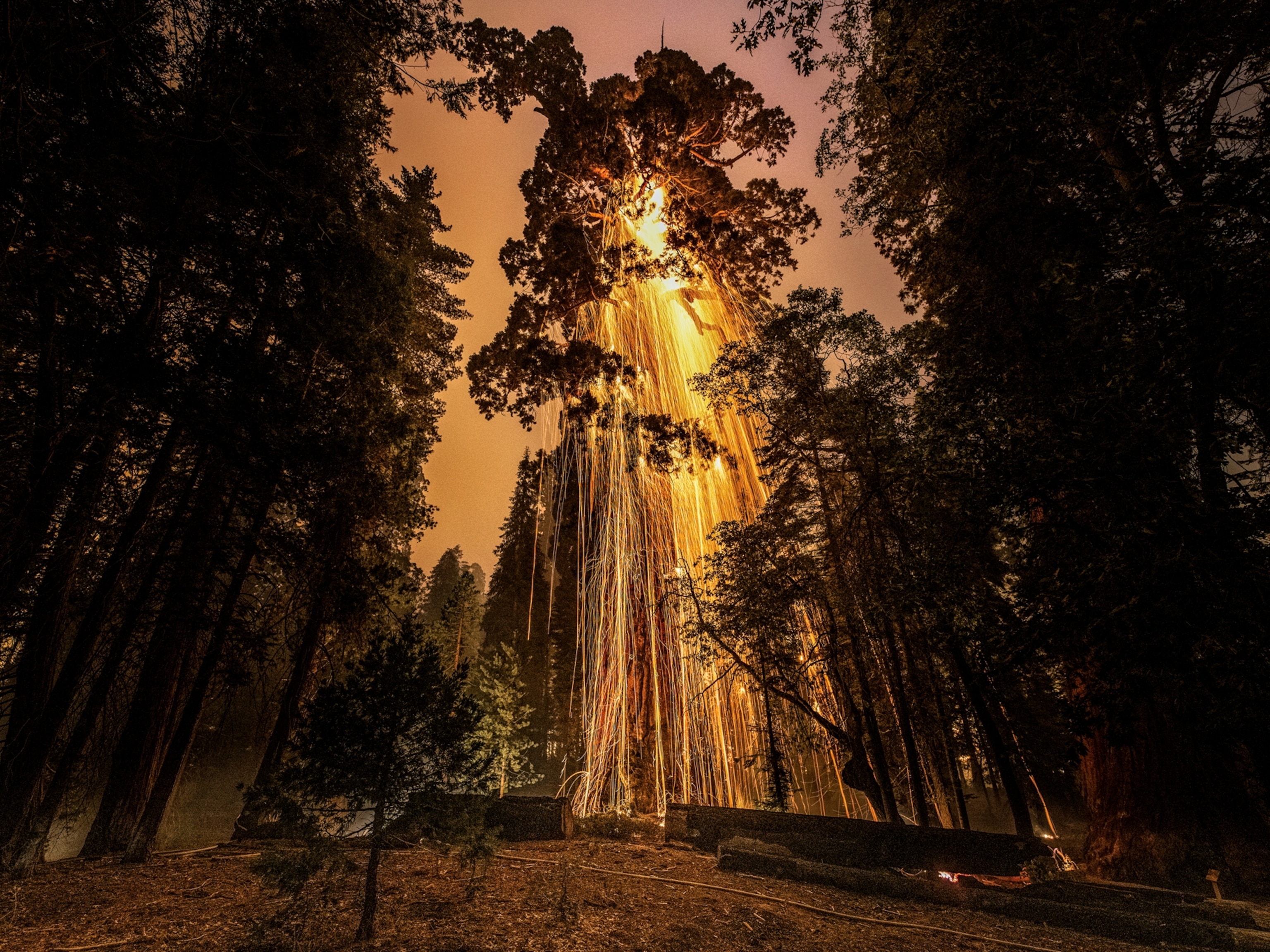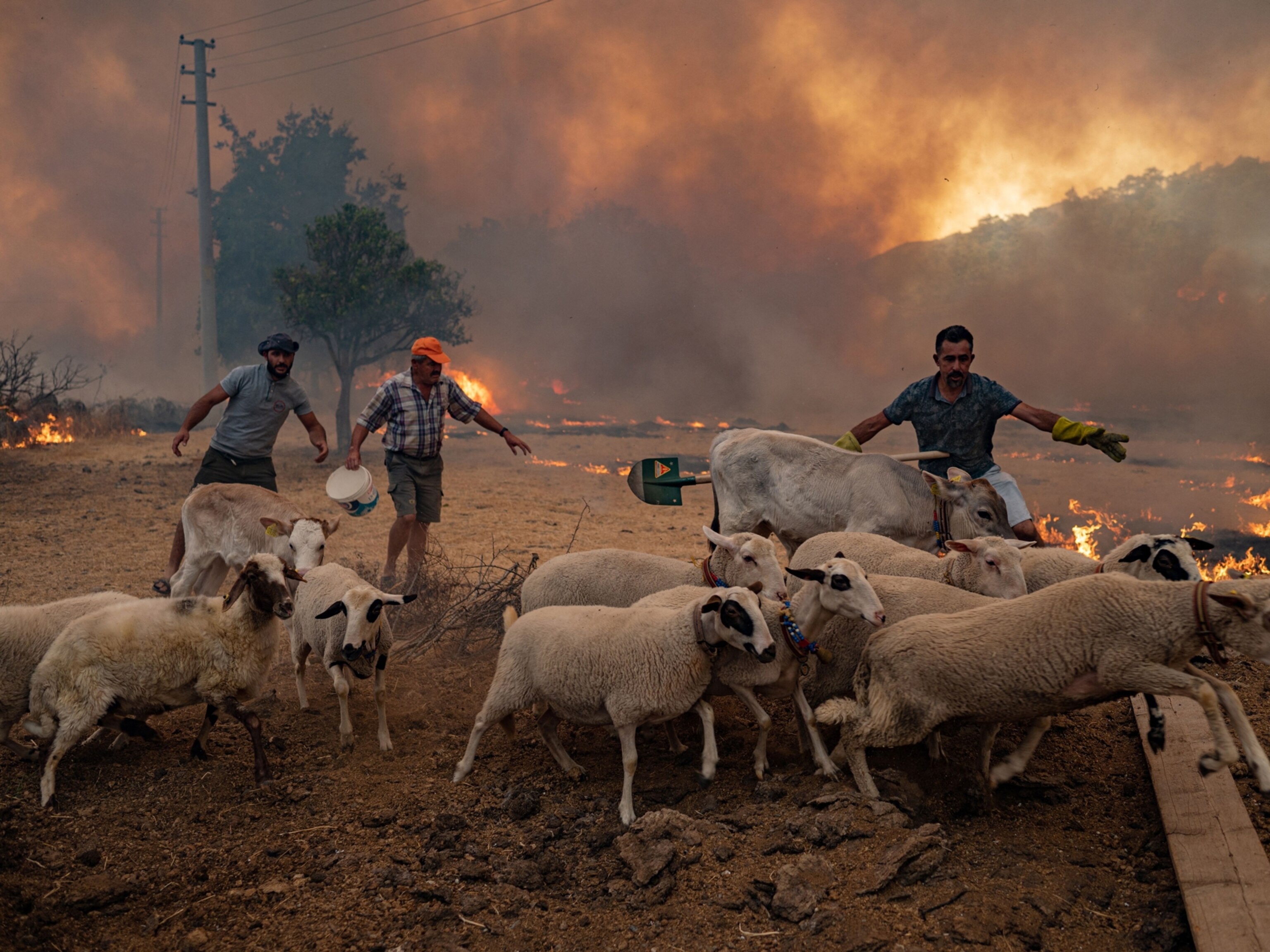










Experts fear Germany’s deadly floods are a glimpse into climate future
Climate change is making extreme rainfall more common, scientists say.
Germany and Belgium, as well as parts of the Netherlands and Luxembourg, are grappling with devastating floods from intense rainfall over the past several days. More than 125 were confirmed dead as of Friday.
While scientists are still piecing together how climate change might have influenced this one weather event, they say it shows key characteristics of how storms will be impacted by climate change: higher amounts of rainfall falling for longer.
The rainfall set new records over the Rhine River Basin in Germany, where most of the flooding occurred. Streets became navigable only by boat, homes were inundated, sinkholes opened up, and part of a castle was swept away.
“It’s not so surprising because the increase of extreme events is something we’ve seen in climate model projections,” says Dieter Gerten, a climatologist at the Potsdam Institute for Climate Impact Research. Yet despite the projections, Gerten says he was still shocked by the size and intensity of the floods. His hometown of Oberkail is in a flooded portion of Germany.
As rescue teams moved in to help affected citizens, European leaders used the floods to reinforce their message that action needs to be taken to curb and adapt to climate change.
“This event shows that even rich countries like Germany are not safe from very severe climate impacts,” says Kai Kornhuber, a climate physicist at Columbia University.
How a warmed world influences extreme rainfall
A slow-moving low-pressure system has been dumping rain over western Europe since early this week, according to AccuWeather. Parts of Germany saw more rain in a day than they would typically see in the entire month. The same system led to floods in London on Monday; it is now heading to southern Europe.
Scientists see two ways in which climate change likely contributed to flooding: the amount of rain delivered and the slow pace of the storm.
“Could this strong rainfall have been more likely because of the climate of the 21st century?” It’s likely the case, says Gerten.
Here’s how it works. Warmer air can hold more water. That’s because at higher temperatures, water molecules condense into vapor and concentrate in the atmosphere. It’s the same physics behind clothes dryers and dishwashers; it’s also why cold drinks sweat.
For every 1.8 degrees Fahrenheit of warming, scientists estimate that the atmosphere can hold about 7 percent more moisture. With more moisture in the atmosphere, formations like the low-pressure system over Europe or hurricanes in the Atlantic will produce more rainfall.
Whether floods result from heavy rainfall depends on a number of factors, including previous rainfall, urban development, and geography, such as whether a region is in a valley. But Gerten says extreme rainfall was what likely made flooding here so extreme.
The slow movement of weather systems carrying large amounts of precipitation will make these rain events worse in Europe, according to a recent study published in Geophysical Research Letters.
“We think these storms in general will become slower moving in summer and autumn because of Arctic amplification,” says Hayler Fowler, a hydroclimatologist at Newcastle University and one of the study’s authors.
The Arctic and Antarctica are warming at a rate two to three times faster than the rest of the planet. Scientists think this warming is destabilizing the jet stream, the counterclockwise current of air circling the Northern Hemisphere.
When the temperature difference between the poles and the equator is high, the jet stream blows stronger and more evenly, but when the poles warm, that temperature difference is less, which slows down the jet stream.
The result, says Gerten, are areas of high and low pressure that stay in place for longer.
“We would expect weather changes every three to seven days, but now we have weather patterns that last for weeks,” he says.
More to come?
Scientists are currently studying how much of this particular catastrophe can be attributed to climate change.
The World Weather Attribution Initiative, which studies the connection between extreme weather and climate change, will study how more intense the floods occur as a result of human influence.
Earlier this month, an international team of scientists from the initiative determined that the Pacific Northwest’s extreme heat wave would have been “virtually impossible” without climate change.
Fowler says they will run models simulating the low-pressure system in pre-industrial conditions. They then run models that factor in the effect of greenhouse gases to compare weather conditions with climate change’s influence.
“This [flood] might be bigger in size and was almost certainly more intense because of climate change,” she says.
While Columbia’s Kornhuber hesitates to speculate on the exact role climate change played in this week’s floods in Germany, he says, “I would be very surprised if this event just happened by chance.”
“Weather is being changed…,” he says. “We know that with every degree of warming, rainfall extremes will become more extreme. I think we can expect more such events in the future.”
Related Topics
You May Also Like
Go Further
Animals
- How can we protect grizzlies from their biggest threat—trains?How can we protect grizzlies from their biggest threat—trains?
- This ‘saber-toothed’ salmon wasn’t quite what we thoughtThis ‘saber-toothed’ salmon wasn’t quite what we thought
- Why this rhino-zebra friendship makes perfect senseWhy this rhino-zebra friendship makes perfect sense
- When did bioluminescence evolve? It’s older than we thought.When did bioluminescence evolve? It’s older than we thought.
- Soy, skim … spider. Are any of these technically milk?Soy, skim … spider. Are any of these technically milk?
Environment
- Are the Great Lakes the key to solving America’s emissions conundrum?Are the Great Lakes the key to solving America’s emissions conundrum?
- The world’s historic sites face climate change. Can Petra lead the way?The world’s historic sites face climate change. Can Petra lead the way?
- This pristine piece of the Amazon shows nature’s resilienceThis pristine piece of the Amazon shows nature’s resilience
- Listen to 30 years of climate change transformed into haunting musicListen to 30 years of climate change transformed into haunting music
History & Culture
- Meet the original members of the tortured poets departmentMeet the original members of the tortured poets department
- Séances at the White House? Why these first ladies turned to the occultSéances at the White House? Why these first ladies turned to the occult
- Gambling is everywhere now. When is that a problem?Gambling is everywhere now. When is that a problem?
- Beauty is pain—at least it was in 17th-century SpainBeauty is pain—at least it was in 17th-century Spain
Science
- Here's how astronomers found one of the rarest phenomenons in spaceHere's how astronomers found one of the rarest phenomenons in space
- Not an extrovert or introvert? There’s a word for that.Not an extrovert or introvert? There’s a word for that.
- NASA has a plan to clean up space junk—but is going green enough?NASA has a plan to clean up space junk—but is going green enough?
- Soy, skim … spider. Are any of these technically milk?Soy, skim … spider. Are any of these technically milk?
Travel
- Could Mexico's Chepe Express be the ultimate slow rail adventure?Could Mexico's Chepe Express be the ultimate slow rail adventure?
- What it's like to hike the Camino del Mayab in MexicoWhat it's like to hike the Camino del Mayab in Mexico




